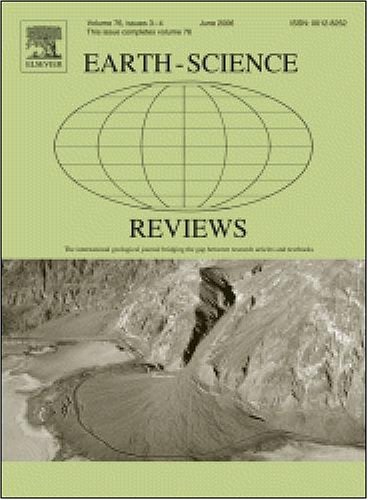An overview of approaches for reducing uncertainties in hydrological forecasting: Progress and challenges
IF 10.8
1区 地球科学
Q1 GEOSCIENCES, MULTIDISCIPLINARY
引用次数: 0
Abstract
Uncertainty plays a key role in hydrological modeling and forecasting, which can have tremendous environmental, economic, and social impacts. Therefore, it is crucial to comprehend the nature of this uncertainty and identify its scope and effects in a way that enhances hydrological modeling and forecasting. During recent decades, hydrological researchers investigated several approaches for reducing inherent uncertainty considering the limitations of sensor measurement, calibration, parameter setting, model conceptualization, and validation. Nevertheless, the scope and diversity of applications and methodologies, sometimes brought from other disciplines, call for an extensive review of the state-of-the-art in this field in a way that promotes a holistic view of the proposed concepts and provides textbook-like guidelines to hydrology researchers and the community. This paper contributes to this goal where a systematic review of the last decade's research (2010 onward) is carried out. It aims to synthesize the theories and tools for uncertainty reduction in surface hydrological forecasting, providing insights into the limitations of the current state-of-the-art and laying down foundations for future research. A special focus on remote sensing and multi-criteria-based approaches has been considered. In addition, the paper reviews the current state of uncertainty ontology in hydrological studies and provides new categorizations of the reviewed techniques. Finally, a set of freely accessible remotely sensed data and tools useful for uncertainty handling and hydrological forecasting are reviewed and pointed out.
减少水文预报不确定性的方法概览:进展与挑战
不确定性在水文建模和预报中起着关键作用,会对环境、经济和社会产生巨大影响。因此,了解这种不确定性的性质并确定其范围和影响,从而加强水文建模和预报至关重要。近几十年来,水文研究人员考虑到传感器测量、校准、参数设置、模型概念化和验证的局限性,研究了多种减少固有不确定性的方法。然而,由于应用和方法的范围和多样性(有时来自其他学科),需要对这一领域的最新成果进行广泛评述,以促进对所提出概念的全面了解,并为水文研究人员和社区提供教科书式的指导。本文对过去十年(2010 年以后)的研究进行了系统回顾,为实现这一目标做出了贡献。本文旨在综合地表水文预报中减少不确定性的理论和工具,深入探讨当前最先进技术的局限性,并为未来研究奠定基础。本文特别关注遥感和基于多标准的方法。此外,本文还回顾了水文研究中不确定性本体的现状,并对所回顾的技术进行了新的分类。最后,还回顾并指出了一系列可免费获取的遥感数据和工具,这些数据和工具对不确定性处理和水文预测非常有用。
本文章由计算机程序翻译,如有差异,请以英文原文为准。
求助全文
约1分钟内获得全文
求助全文
来源期刊

Earth-Science Reviews
地学-地球科学综合
CiteScore
21.70
自引率
5.80%
发文量
294
审稿时长
15.1 weeks
期刊介绍:
Covering a much wider field than the usual specialist journals, Earth Science Reviews publishes review articles dealing with all aspects of Earth Sciences, and is an important vehicle for allowing readers to see their particular interest related to the Earth Sciences as a whole.
 求助内容:
求助内容: 应助结果提醒方式:
应助结果提醒方式:


